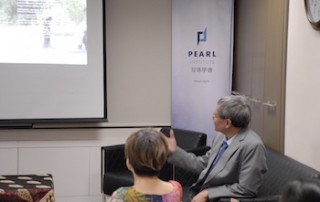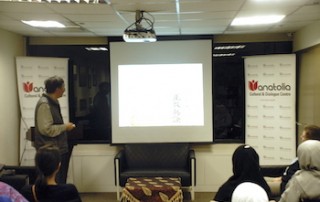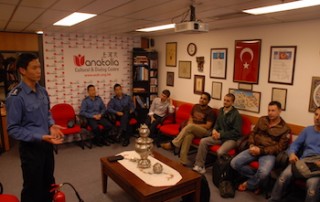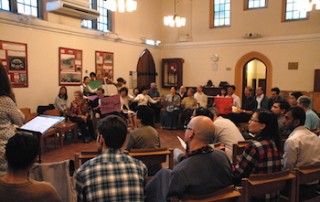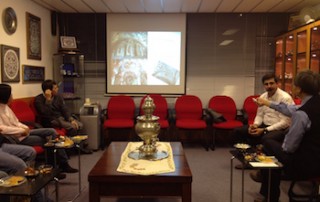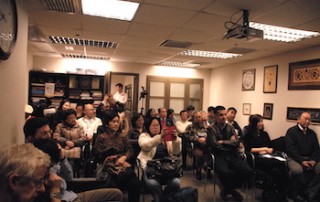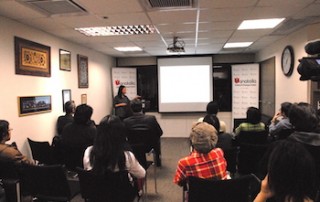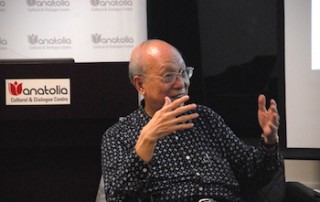Talk on Turkey’s Historical Significance for the Bahá’í Faith
Posted on 26/04/2016
EVENT DETAILS
Ms. Kate DeStefano Weisman, who is a dedicated Bahá’í lives in Hong kong, gave a speech on the Bahá’í Faith and introduced the life of founder of Bahá’í faith. In her speech, she has mentioned that the Bahá’í Faith has important historical links to present day Turkey. Exiled by the Ottoman Empire for forty years in the mid to late nineteenth century, Bahá’u’lláh, the Founder of the Bahá’í Faith, was sent to Constantinople, present day Istanbul and Adrianople, modern day Edirne. These four and a half years in Turkey have special significance for Baha’is. Beginning in September 1863, Bahá’u’lláh wrote a series of letters to the world leaders of His time, addressing, among others, Emperor Napoleon III, Queen Victoria, Kaiser Wilhelm I, Tsar Alexander II of Russia, Emperor Franz Joseph, Pope Pius IX, Sultan Abdul-Aziz, and the Persian ruler, Nasiri’d-Din Shah. In these letters, Bahá’u’lláh openly proclaimed His station and spoke of the dawn of a new age.
She also stated that Bahá’u’lláh’s reputation grew, attracting the ardent interest of scholars, government officials and diplomats. It was during this time that the followers of Bahá’u’lláh’ began calling themselves Baha’is. The Turkish Baha’i community today, estimated to be between 10,000 and 20,000, is rooted from Persian Baha’is who settled in Istanbul as traders, refugees, and pilgrims.
After her talk, she had welcomed question from audiences. Afterwards both Ms. Kate and Mr. Salih presented their gifts mutually.
We are thankful all our Bahá’í sisters and brothers for this great night.
Invalid Displayed Gallery
- Talk on Turkey’s Historical Significance for the Bahá’í FaithPearl Institute2017-06-06T11:38:04+08:00
- Talk on Heritage of Dialogues between Islam and ConfucianismPearl Institute2017-06-06T11:38:05+08:00
- Talk about Stories of Syrian Refugees from A Photographer’s FramePearl Institute2017-06-06T11:38:10+08:00
The views and opinions expressed on this posts/pages are those of the authors and do not necessarily reflect the views or opinions of Pearl Institute, its staff, other authors, members, partners, or sponsors.





